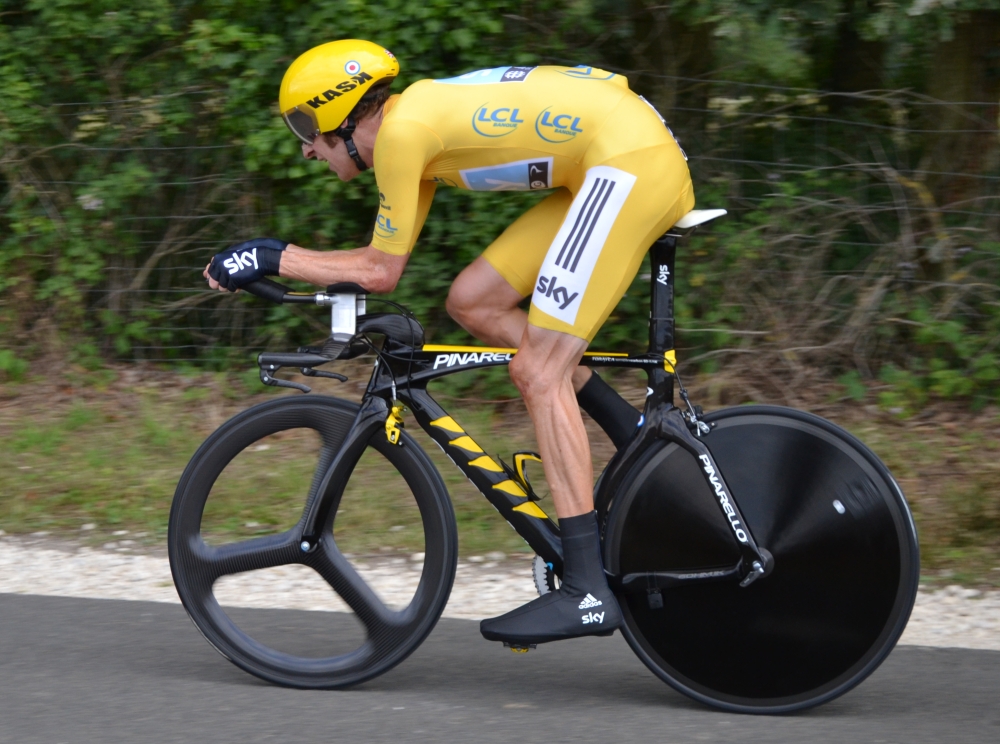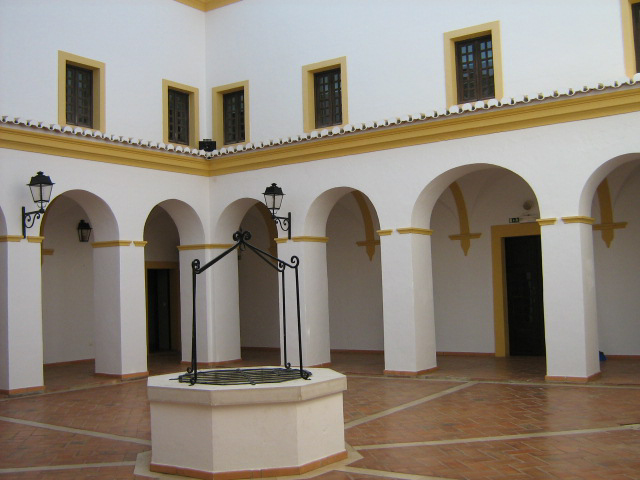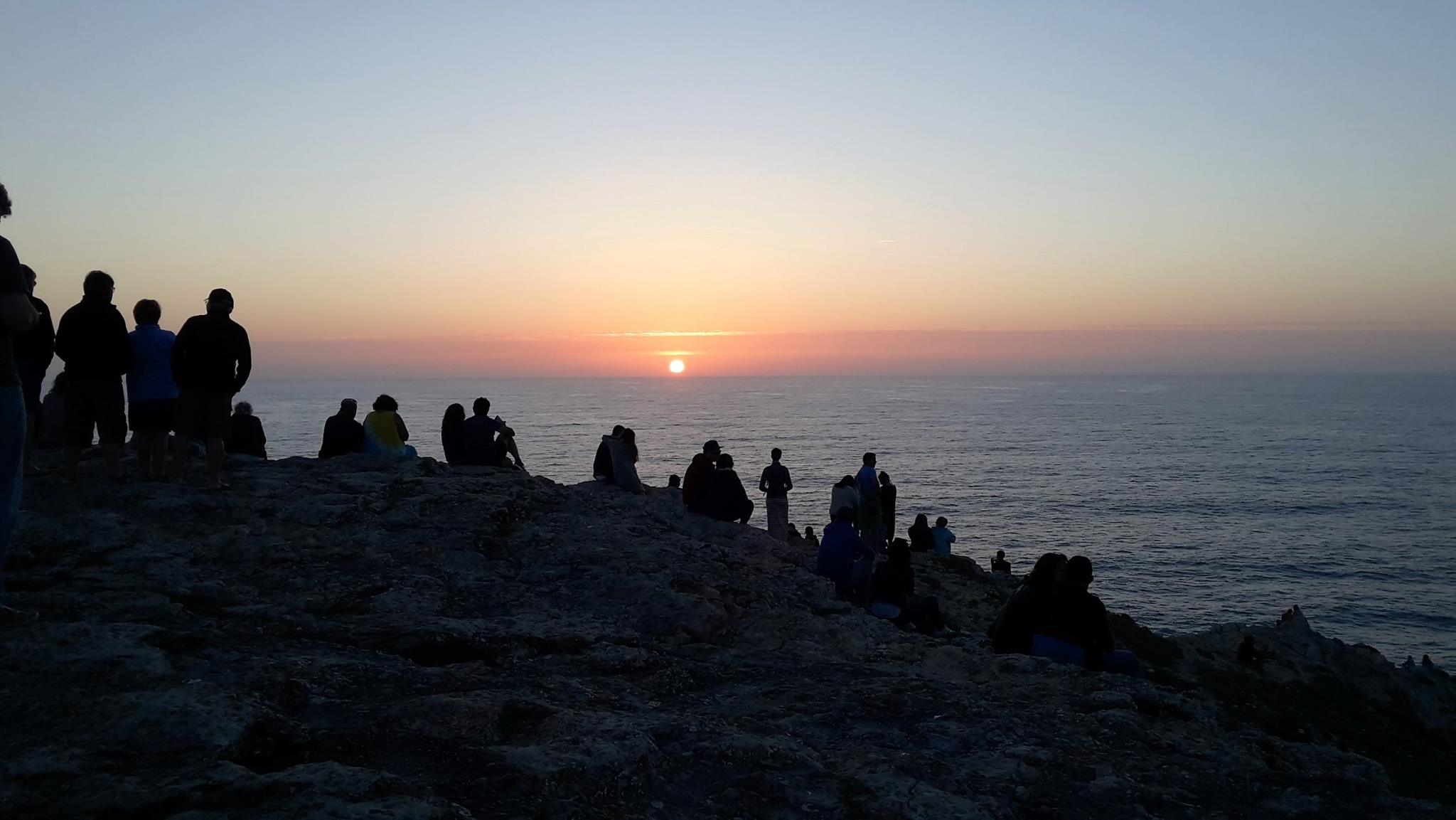|
2018 Volta Ao Algarve
The 2018 Volta ao Algarve was a road cycling stage race that took place in the Algarve region of Portugal between 14 and 18 February 2018. It was the 44th edition of the Volta ao Algarve and was rated as a 2.HC event as part of the UCI Europe Tour. Teams Twenty-five teams participated in the race: 13 UCI WorldTeams, 3 UCI Professional Continental teams and 9 UCI Continental teams, forming a field of 173 riders. Each team had a maximum of seven riders: Route Stages Stage 1 Stage 2 Stage 3 Stage 4 Stage 5 Classification leadership table In the 2018 Volta ao Algarve, four different jerseys were awarded. For the general classification, calculated by adding each cyclist's finishing times on each stage, and allowing time bonuses for the first three finishers at intermediate sprints and at the finish of mass-start stages, the leader received a yellow jersey. This classification was considered the most important of the 2018 Volta ao Algarve, and the winner of the classif ... [...More Info...] [...Related Items...] OR: [Wikipedia] [Google] [Baidu] |
2018 UCI Europe Tour
The 2018 UCI Europe Tour was the fourteenth season of the UCI Europe Tour. The 2018 season began on 25 January 2018 with the Vuelta a Mallorca, Trofeo Porreres, Felanitx, Ses Salines, Campos and ended on 16 October 2018 with the Nationale Sluitingsprijs. French rider Nacer Bouhanni (), who scored 1,124 points in the 2017 UCI Europe Tour, 2017 edition, is the defending champion from the 2017 UCI Europe Tour. Throughout the season, points are awarded to the top finishers of stages within stage races and the final general classification standings of each of the stages races and one-day events. The quality and complexity of a race also determines how many points are awarded to the top finishers, the higher the UCI rating of a race, the more points are awarded. The UCI race classifications, UCI ratings from highest to lowest are as follows: * Multi-day events: 2.HC, 2.1 and 2.2 * One-day events: 1.HC, 1.1 and 1.2 Events January February March April May June July August ... [...More Info...] [...Related Items...] OR: [Wikipedia] [Google] [Baidu] |
Albufeira
Albufeira () is a city and seat of its own municipality in the district of Faro, in the southernmost Portuguese region of Algarve. The municipality population in 2021 was 44,158, in an area of . The city proper had a population of 28,645 in 2021. It is from Lisbon, and is within close proximity of Paderne Castle. Lagoa is located to the west, and Faro to the south-east. A tourist destination (due to its coastal conditions), Albufeira expands to approximately 300,000 residents during the summer and during the Christmas and New Year celebrations, owing to the number of hotels and lodgings in its municipality, that includes marina facilities, golf courses, restaurants and bars for the annual flood of visitors. History It is unclear when the first settlements specifically formed in the region of Albufeira, although scientific research suggests origins during the pre-historic epoch, and that the town of Albufeira formed as an out-port of the maritime fishery. The primitive sett ... [...More Info...] [...Related Items...] OR: [Wikipedia] [Google] [Baidu] |
Alto Do Malhão
The musical term alto, meaning "high" in Italian (Latin: ''altus''), historically refers to the contrapuntal part higher than the tenor and its associated vocal range. In 4-part voice leading alto is the second-highest part, sung in choruses by either low women's or high men's voices. In vocal classification these are usually called contralto and male alto or countertenor. Such confusion of "high" and "low" persists in instrumental terminology. Alto flute and alto trombone are respectively lower and higher than the standard instruments of the family (the standard instrument of the trombone family being the tenor trombone), though both play in ranges within the alto clef. Alto recorder, however, is an octave higher, and is defined by its relationship to tenor and soprano recorders; alto clarinet is a fifth lower than B-flat clarinet, already an 'alto' instrument. There is even a contra-alto clarinet, (an octave lower than the alto clarinet), with a range B♭0 – D4. Etymology ... [...More Info...] [...Related Items...] OR: [Wikipedia] [Google] [Baidu] |
Faro, Portugal
Faro ( , ) is a municipality, the southernmost city and capital of the district of the same name, in the Algarve region of southern Portugal. With an estimated population of 60,995 inhabitants in 2019 (with 39,733 inhabitants in the city proper, making it the biggest city and second most populous municipality in the Algarve (after Loulé) and one of the biggest in Southern Portugal), the municipality covers an area of about . History The Ria Formosa lagoon attracted humans from the Palaeolithic age until the end of prehistory. The first settlements date from the fourth century BC, during the period of Phoenician colonization of the western Mediterranean. At the time, the area was known as Ossonoba, and was the most important urban centre of southern Portugal and commercial port for agricultural products, fish, and minerals. Between the second and eighth centuries, the city was under the domain of the Romans, then the Byzantines, and later Visigoths, before being conquered by ... [...More Info...] [...Related Items...] OR: [Wikipedia] [Google] [Baidu] |
Tavira
Tavira () is a Portuguese town and municipality, capital of the ''Costa do Acantilado'', situated in the east of the Algarve on the south coast of Portugal. It is east of Faro and west of Huelva across the river Guadiana into Spain. The Gilão River meets the Atlantic Ocean in Tavira. The population in 2011 was 26,167, in an area of 606.97 km². Tavira is the Portuguese representative community for the inscription of the Mediterranean Diet as a Intangible Cultural Heritage of Humanity of UNESCO. History Bronze Age to the Roman Empire Tavira's origins date back to the late Bronze Age (1.000-800 BC). In the 8th century BC it became one of the first Phoenician settlements in the Iberian West. The Phoenicians created a colonial urban center here with massive walls, at least two temples, two harbours and a regular urban structure which lasted until the end of 6th century BC, when it was destroyed by conflict. It is thought its original name was Baal Saphon, named after th ... [...More Info...] [...Related Items...] OR: [Wikipedia] [Google] [Baidu] |
Almodôvar
Almodôvar ( or ; ar, المدوّر, al-Mudawwar, the Round one) is a town and a municipality in the District of Beja, Portugal. The population in 2011 was 7,449, in an area of 777.88 km2. The present Mayor is António Bota, a member of the Socialist Party. The town's Museum of Southwestern Writing is featured on episode 1 of the three part documentary ''The Celts: Blood, Iron and Sacrifice'', which was broadcast by the BBC in 2015, and hosted by Alice Roberts and Neil Oliver, featuring stone tables containing what some archeologists believe to be a proto-Celtic language. Parishes The municipality is subdivided into the following parishes: * Aldeia dos Fernandes * Almodôvar e Graça dos Padrões * Santa Clara-a-Nova e Gomes Aires * Rosário * Santa Cruz * São Barnabé History The village of Almodôvar is signaled in medieval Islamic cartography under the name ''al-Mudawwar'' meaning "thing in round" or "surrounded in round". The settlement was rebuilt at the time ... [...More Info...] [...Related Items...] OR: [Wikipedia] [Google] [Baidu] |
Individual Time Trial
An individual time trial (ITT) is a road bicycle race in which cyclists race alone against the clock (in French: ''contre la montre'' – literally "against the watch", in Italian: ''tappa a cronometro'' "stopwatch stage"). There are also track-based time trials where riders compete in velodromes, and team time trials (TTT). ITTs are also referred to as "the race of truth", as winning depends only on each rider's strength and endurance, and not on help provided by teammates and others riding ahead and creating a slipstream. Individual time trial are usually held on flat or rolling terrain, although sometimes they are held up a mountain road (in Italian: ''cronoscalata'' "chrono climbing"). Sometimes the opening stage of a stage race is a very short individual time trial called a prologue (8 km or less for men, 4 km or less for women and juniors). Starting times are at equal intervals, usually one or two minutes apart. The starting sequence is usually based on the finishing times ... [...More Info...] [...Related Items...] OR: [Wikipedia] [Google] [Baidu] |
Time Trial
In many racing sports, an athlete (or occasionally a team of athletes) will compete in a time trial against the clock to secure the fastest time. The format of a time trial can vary, but usually follow a format where each athlete or team sets off at a predetermined interval to set the fastest time on a course. Variation in sports Cycling In cycling, for example, a time trial (TT) can be a single track cycling event, or an individual or team time trial on the road, and either or both of the latter may form components of multi-day stage races. In contrast to other types of races, athletes race alone since they are sent out in intervals (interval starts), as opposed to a mass start. Time trialist will often seek to maintain marginal aerodynamic gains as the races are often won or lost by a couple of seconds. Skiing In cross-country skiing and biathlon competitions, skiers are sent out in 30 to 60 second intervals. Rowing In rowing, time trial races, where the boats are se ... [...More Info...] [...Related Items...] OR: [Wikipedia] [Google] [Baidu] |
Lagoa, Algarve
Lagoa () is a city and municipality in the district of Faro, in the Portuguese region of Algarve. The population of the municipality in 2011 was 22,975, in an area of 88.25 km². Its urban population, in the city of Lagoa proper, is 6,100 inhabitants. An important travel destination, its coast has won numerous accolades. Marinha Beach was considered by the Michelin Guide as one of the 10 most beautiful beaches in Europe and as one of the 100 most beautiful beaches in the world. History According to some historical sources, the earliest settlement in the area occurred along the edges of small lakes or marshes ( pt, lagoa), which were drained in order to create a fertile land. There are many pre-historic vestiges of the early settlements, including menhirs (standing stones), funerary necropoles and artifacts that date a human presence to remote history. After the Celtiberian era, including the age of Cynete presence and domination, followed by the arrival of the Roman Empir ... [...More Info...] [...Related Items...] OR: [Wikipedia] [Google] [Baidu] |
Fóia (mountain)
 With an elevation of and a topographic prominence of , Fóia is the highest mountain of Algarve, Portugal. It is part of the Serra de Monchique range and is located at within Monchique (parish), Monchique parish.
There is a Road surface, paved road right to the summit which is topped by several telecommunication facilities including the Portuguese Air Force#Fix component, Radar Station Number 1 of the Portuguese Air Force. On a clear day the Atlantic Ocean is visible.
Mountains of Portugal
{{Faro-geo-stub ...
With an elevation of and a topographic prominence of , Fóia is the highest mountain of Algarve, Portugal. It is part of the Serra de Monchique range and is located at within Monchique (parish), Monchique parish.
There is a Road surface, paved road right to the summit which is topped by several telecommunication facilities including the Portuguese Air Force#Fix component, Radar Station Number 1 of the Portuguese Air Force. On a clear day the Atlantic Ocean is visible.
Mountains of Portugal
{{Faro-geo-stub ...
[...More Info...] [...Related Items...] OR: [Wikipedia] [Google] [Baidu] |
Sagres (Vila Do Bispo)
Sagres is a civil parish in the municipality of Vila do Bispo, in the southern Algarve of Portugal. It has 1,894 inhabitants (2021) in an area of . It is historically connected to the early Portuguese Age of Discovery. Sagres is near the Western end of the world's longest estimated straight-line path over land, at 11,241 km, ending near Jinjiang in the People's Republic of China. History The name Sagres derives from ''Sagrado'' (''holy'') owing to the important local religious practices and rituals that occurred during the pre-history of the nation.Câmara Municipal de Vila do Bispo (2012), p.1 From here some of the Mediterranean peoples (including the Phoenicians, Greeks, Carthaginians and Romans), venerated their divinities and which some believed, owing to the absence of a human settlement, was the gathering place for their gods. Christinas (Mozarabs) that lived in this zone, during the Muslim occupation, erected the Church of Corvo, where the mortal remains of the s ... [...More Info...] [...Related Items...] OR: [Wikipedia] [Google] [Baidu] |
.jpg)





